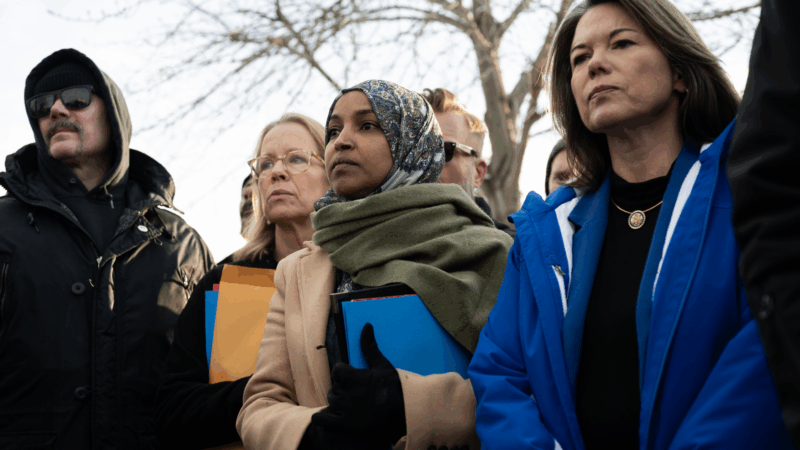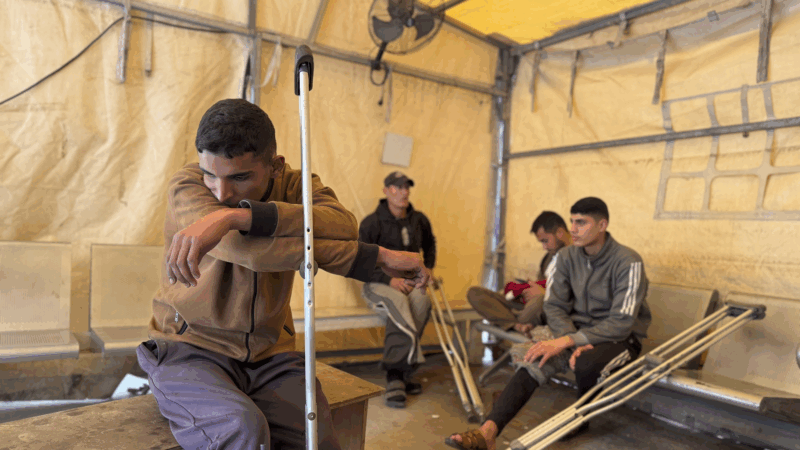Birmingham and “The Metropolitan Revolution”
Downtown Birmingham and some nearby neighborhoods are seeing an influx of new residents, mainly young professionals and retired baby boomers. It’s part of a national trend. The Census Bureau reports millions of Americans have migrated from suburbs to cities since 2010. Bruce Katz, a vice president of the Brookings Institution and co-author of “The Metropolitan Revolution: How Cities and Metros Are Fixing our Broken Politics and Fragile Economy,” thinks this is a good thing. Katz believes cities like Birmingham are the new economic engines in post-recession America. Katz spoke with WBHM’s Greg Bass about his visit to Birmingham last year, and the central idea behind what he calls “The Metropolitan Revolution.”
Defining The Metropolitan Revolution:
“The metropolitan revolution is the response of cities and metropolitan areas to the drift of the national government and the state governments. The United States has many challenges around competitiveness and demographic change, and the institutions and leaders at the city and metropolitan level are the folks leading the charge to grapple with our challenges. Washington is mired in partisan rancor, and you know better than I about the state of your state capital. So what I see and my colleagues see in the United States are cities and metropolitan leaders, and also private, civic, business, philanthropic and university leaders stepping up and doing the hard work to grow more and better jobs for their citizenry.”
His Impressions of Birmingham:
“My impression was that you have a very strong core. Your downtown proper, but also where the University of Alabama at Birmingham is located, some other research institutes, Innovation Depot which is a really wonderful innovation accelerator which is quite near the downtown and quite near the university, Railroad Park, the minor league stadium, I mean you’ve got a small envelope in the core of your metropolis that I think is being fundamentally revalued by an economy that rewards proximity, density, authenticity, vibrancy, and a collaborative ethic. I was really blown away by what I saw in Birmingham, and I’ve talked about it repeatedly in other cities in the United States and in Europe and elsewhere since I’ve left.”
The Importance of Concentrating Resources in Proximity to the City Center:
“Because talented workers can be anywhere in the U. S. and the world and what they disproportionally want these days is to be in places where they can ‘live, work and play’, they have easy access to amenities, and they have access to other talent. I mean, this is how innovation occurs. It’s the seamless synergy and creation of discoveries from the market. You might start with a research project in a university, but then you commercialize it for the market. Or you may have a talented individual in one company connect with a talented individual in another company, a completely different line of business. You know, design connected to manufacturing, or big data analytics related to your finance sector. I mean this is where innovation is occurring now in the convergence of clusters and companies and academic competencies. So proximity really matters in places like Birmingham which just naturally have this high level of concentration within the core of your city with great amenities. I mean I went through the downtown blown away by the quality of the architecture and the historic buildings and the streetscapes. What an incredible downtown you have. Well, that’s what talented workers and innovative firms want these days.
Birmingham’s Gentrification Fears:
“I think you should be partly concerned, but I wouldn’t let perfect be the enemy of the good. I mean you had a large level of decentralization in your population over many, many decades. It will take quite some time to gentrify a lot of the neighborhoods and see a real price effect. Right now, I think job number one should be to try to grow your innovative economy, and your creative economy, and to be very purposeful about your education system and your workforce development system. So, again, more people within the core of the city in disadvantaged neighborhoods can actually participate in the updraft. And to have a focus on neighborhood regeneration and housing affordability as you move along.
Birmingham, Alabama is not San Francisco, it’s not Seattle, it’s not Boston, it’s not New York. I think gentrification is an issue, but I don’t think it’s the central issue facing the city or the metropolis.”
America’s top figure skaters dazzled St. Louis. I left with a new love for the sport.
The U.S. Figure Skating National Championships brought the who's who of the sport to St. Louis. St. Louis Public Radio Visuals Editor Brian Munoz left a new fan of the Olympic sport.
DHS restricts congressional visits to ICE facilities in Minneapolis with new policy
A memo from Homeland Security Secretary Kristi Noem, obtained by NPR, instructs her staff that visits should be requested at least seven days in advance.
Historic upset in English soccer’s FA Cup as Macclesfield beat holders Crystal Palace
The result marks the first time in 117 years that a side from outside the major national leagues has eliminated the reigning FA Cup holders.
Venezuela’s exiles in Chile caught between hope and uncertainty
Initial joy among Venezuela's diaspora in Chile has given way to caution, as questions grow over what Maduro's capture means for the country — and for those who fled it.
Sunday Puzzle: Pet theory
NPR's Sacha Pfeiffer plays the puzzle with KAMW listener Daniel Abramson of Albuquerque, N.M, and Weekend Edition Puzzlemaster Will Shortz.
Inside a Gaza medical clinic at risk of shutting down after an Israeli ban
A recent Israeli decision to bar Doctors Without Borders and other aid groups means international staff and aid can no longer enter Gaza or the West Bank. Local staff must rely on dwindling supplies and no international expertise.







